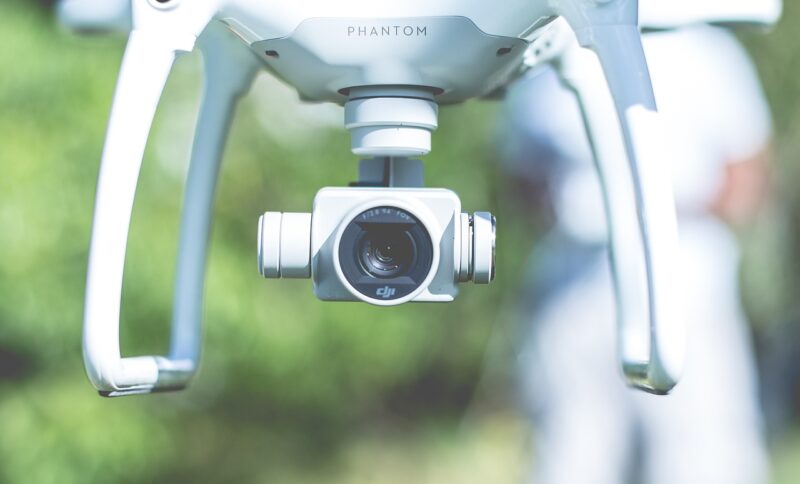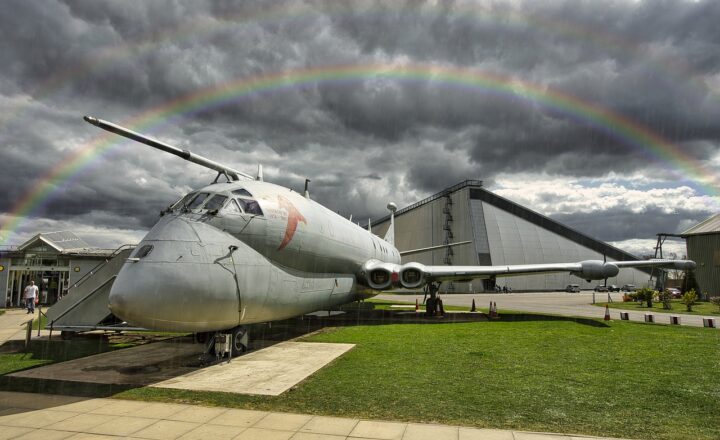How AI-Powered Drones Are Revolutionizing Surveillance and Logistics
November 11, 2024

In recent years, technological advancements have transformed the way industries operate, and drones equipped with artificial intelligence (AI) are at the forefront of this revolution. From enhancing surveillance to streamlining logistics, AI-powered drones are changing the landscape across various sectors. This article explores how these innovative flying machines are reshaping industries and what the future holds.
1. Understanding AI-Powered Drones
AI-powered drones are unmanned aerial vehicles (UAVs) integrated with advanced artificial intelligence systems that allow them to perform tasks independently or semi-autonomously. Equipped with sophisticated sensors, cameras, and machine learning algorithms, these drones can analyze data, make real-time decisions, and adapt to changing environments.
Key components of AI-powered drones include:
- Autonomous Navigation: Utilizing GPS and computer vision, AI drones can navigate complex environments without human intervention.
- Data Processing: Machine learning algorithms allow drones to process vast amounts of data quickly, enabling real-time analytics.
- Obstacle Detection: AI enhances the drone’s ability to detect and avoid obstacles, ensuring safer flights even in congested settings.
The combination of these capabilities makes AI-powered drones versatile tools for a wide range of applications, particularly in surveillance and logistics.
2. Revolutionizing Surveillance
One of the most significant impacts of AI-powered drones is in the field of surveillance. Traditional surveillance methods can be time-consuming and resource-intensive, while drones provide a more efficient and effective solution. Here’s how they are transforming surveillance operations:
- Real-Time Monitoring: AI drones can cover large areas quickly, providing real-time video feeds to security personnel. This immediate access allows for faster responses in emergency situations.
- Facial Recognition: Advanced AI algorithms can identify individuals using facial recognition technology, enhancing security measures in public spaces and high-risk areas.
- Activity Analysis: AI systems can analyze behavior patterns and detect unusual activities, alerting authorities to potential threats or criminal activities more effectively than human operators could.
In sectors such as law enforcement, disaster response, and perimeter security, the deployment of AI-powered drones is significantly enhancing situational awareness and operational capabilities.
3. Streamlining Logistics
Aside from surveillance, AI drones are also revolutionizing logistics, particularly in shipping and delivery systems. Drones offer solutions to various logistical challenges, including reduced delivery times, cost efficiency, and improved tracking. Here are the key benefits:
- Last-Mile Delivery: Drones can transport goods directly to customers, bypassing traffic delays and reducing delivery times significantly. Major companies like Amazon are already testing drone delivery systems to enhance their logistics operations.
- Supply Chain Optimization: AI drones can monitor warehouse inventories and transport goods between locations within supply chains efficiently, helping to streamline operations and reduce lag times.
- Data-Driven Decisions: By analyzing logistics data and patterns, AI drones can make informed decisions regarding optimal flight paths and delivery schedules, further improving logistics efficiency.
As companies embrace AI drones for logistics, the industry is likely to become more agile, responsive, and customer-centric.
4. Case Studies: Successful Implementations
To understand the practical benefits of AI-powered drones, let’s look at a few prominent case studies from various sectors:
A. Agriculture
Farmers are increasingly using AI drones for crop monitoring. These drones equipped with multispectral cameras gather data on crop health, soil conditions, and irrigation needs, allowing farmers to make precise decisions that enhance yield and sustainability.
B. Construction
In the construction industry, AI drones provide aerial surveys and construction site monitoring. They enable project managers to track progress, manage resources, and improve safety by identifying hazardous zones on-site.
C. Emergency Services
During natural disasters, AI drones assist emergency services by delivering medical supplies to remote areas, assessing damage from above, and establishing communication networks when traditional infrastructure is compromised.
These case studies exemplify how AI-powered drones are not only augmenting existing operations but also offering new possibilities across diverse industries.
5. The Future of AI-Powered Drones
As technology continues to advance, the future of AI-powered drones looks promising. Emerging trends indicate that these drones will become more integrated into everyday operations across sectors. Here are some key trends to watch:
- Increased Regulations: As drone usage becomes more widespread, governments will likely implement stricter regulations regarding airspace management, privacy, and safety, shaping how drones operate within societal frameworks.
- Enhanced AI Capabilities: As AI continues to evolve, we can expect drones with advanced machine learning and data analysis capabilities, improving their efficiency and problem-solving abilities in real-time.
- Broader Applications: Industries such as healthcare, insurance, and telecommunications are exploring the potential of AI drones for various applications, such as remote patient monitoring and aerial inspections for infrastructure maintenance.
The journey of AI-powered drones is just beginning, and their full potential is yet to be realized.
Conclusion
AI-powered drones are not merely a technological novelty; they represent a fundamental shift in how various industries conduct surveillance and logistics. By integrating AI technologies, these drones enhance efficiency, reduce risks, and improve decision-making across sectors. As we move towards a future where drones are pivotal in daily operations, embracing this technology will be critical for businesses aiming to stay competitive and innovative.
Whether in enhancing security measures or transforming delivery systems, the potential applications of AI-powered drones are vast and varied. The flight towards smarter operations has just begun, and organizations willing to adopt innovative technologies like AI drones will undoubtedly lead the way.






